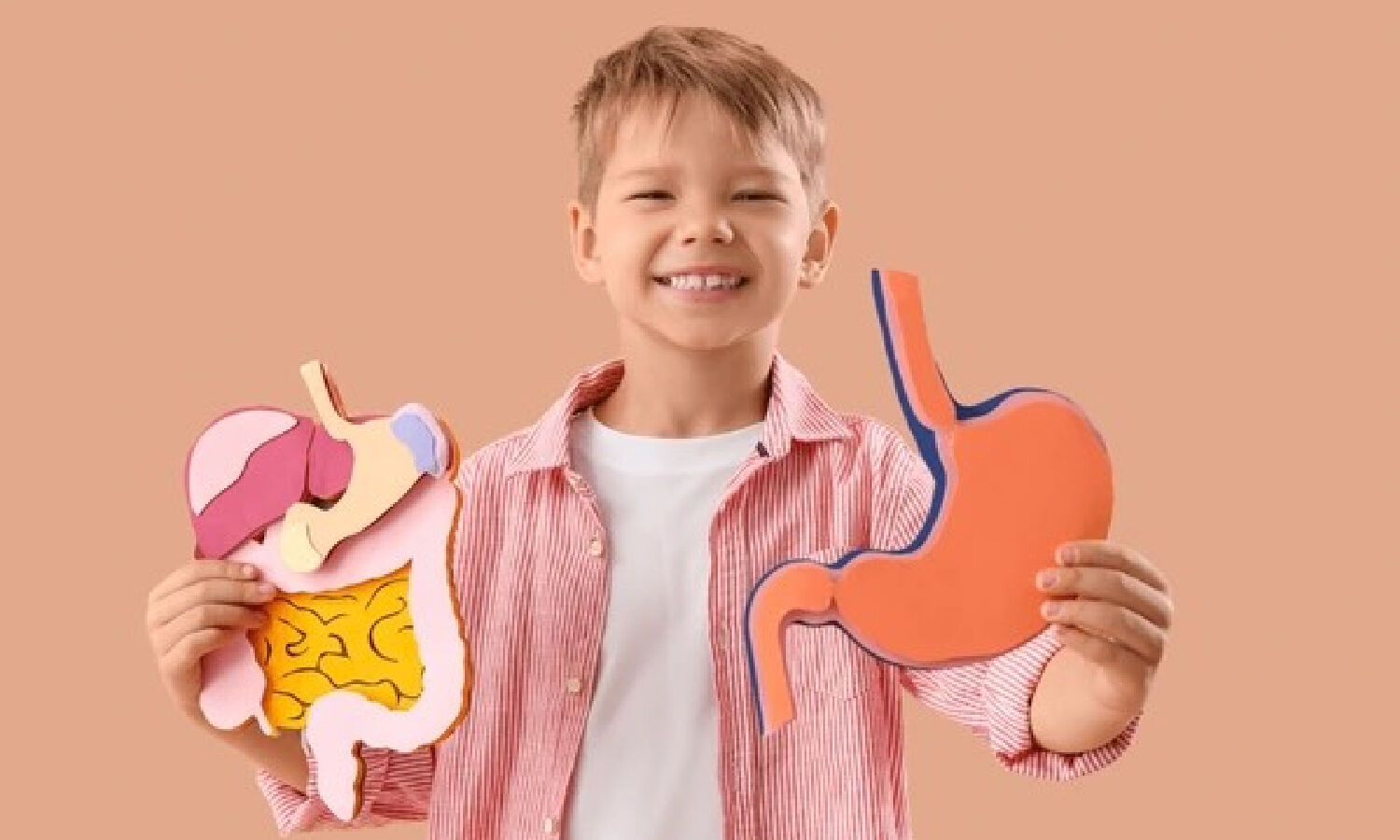Poor digestion in children can affect growth, immunity and mood, warn experts

Hyderabad: A child’s digestive system plays a vital role in their overall growth, immunity and even mental health.
Pediatric nutritionist, Dr Shreya Iyer, speaking to NewsMeter, says, “The gut is often called the second brain, in children, especially, a balanced gut directly affects their concentration, sleep quality and resistance to infections.”
Poor digestion in children can show up as bloating, constipation, irritability, poor appetite or even frequent colds. Many of these issues are linked to diet and daily habits rather than serious illness, making them easier to manage with consistent care.
Here are some of the ways the experts recommend:
1. Start the day with hydration
One of the simplest ways to support digestion is to encourage children to drink water soon after waking up. A glass of lukewarm water can help flush out toxins and activate bowel movement.
Dr Iyer adds, “Most children drink water only when they’re thirsty, but regular hydration helps enzymes work effectively during digestion.”
Infused water with slices of cucumber, mint, or lemon can make hydration more appealing to younger children.
2. Prioritise fibre in every meal
Fibre-rich foods are essential for gut motility and preventing constipation. Whole grains, fruits, vegetables, beans, and lentils are the best natural sources.
Pediatric gastroenterologist Dr Rohan Sethi notes, “Parents often over-focus on protein and calcium for growth, but fibre is equally important. A child’s plate should have a rainbow of vegetables and fruits; that’s an easy visual cue.”
Smoothies with fruits and oats, vegetable soups, or mixed dal khichdi are simple, fibre-packed options that suit Indian diets.
3. Encourage mindful eating habits
Rushed meals, overeating, or eating while watching screens can all slow down digestion. Teaching children to chew food slowly is a small but powerful habit.
“Digestion begins in the mouth,” explains Dr Sethi. “Chewing releases saliva that contains enzymes like amylase, which break down starches. When kids gulp food, they miss this crucial first step.”
Setting fixed meal times and creating a calm eating environment helps children connect with their hunger cues.
4. Include probiotic and prebiotic foods
A healthy gut microbiome, the colony of good bacteria in the intestines, supports digestion and immunity. Foods like curd, buttermilk, fermented idlis, dosa batter, and homemade pickles are rich in probiotics.
Prebiotic foods like bananas, garlic, onions, and oats help feed these good bacteria.
Clinical dietitian Anjali Ramanathan says, “Instead of supplements, Indian traditional foods naturally provide probiotics. A bowl of curd rice or lassi in the afternoon is enough for a child’s gut health.”
5. Limit processed foods and sugary drinks
Packaged snacks, instant noodles, and sweetened beverages can irritate the digestive system and slow down metabolism. High sugar intake also promotes bad gut bacteria.
Dr Ramanathan warns, “Even fruit juices labelled ‘natural’ can contain hidden sugars that upset a child’s gut flora. Encourage whole fruits instead.”
Simple home-cooked meals, dal, vegetables, rice, and fruits, remain the best foundation for digestive strength.
6. Maintain physical activity
Movement helps stimulate digestion by improving circulation and gut motility. Even 30–45 minutes of daily activity, such as outdoor play, cycling, or yoga, can make a difference.
Child wellness expert Dr Leela Kapoor explains, “When children sit for long hours, for school, homework, or screens, their digestion slows down. Light physical activity after meals, like a short walk, supports better nutrient absorption.”
7. Ensure proper sleep and routine
Sleep is closely linked to gut function. Irregular sleep patterns can disrupt digestive rhythms and cause bloating or acidity.
Maintaining consistent meal and sleep times regulates the body’s internal clock, improving both metabolism and digestion.
“Parents underestimate how much routine matters,” says Dr Kapoor. “A predictable schedule trains the digestive system to work efficiently.”
8. Avoid overfeeding and late dinners
Children have smaller stomachs and different appetite patterns each day. Forcing them to finish large portions can cause discomfort and indigestion.
Dr Sethi advises, “It’s better to serve smaller, more frequent meals than three large ones. And dinner should ideally be two hours before bedtime to allow proper digestion.”
9. Use gentle natural remedies when needed
When mild digestive issues occur, simple home remedies can help:
• Fennel water after meals eases gas and bloating.
• Jeera (cumin) water aids digestion and reduces acidity.
• A small piece of banana or papaya after dinner can help prevent constipation.
However, Dr Iyer cautions, “Home remedies are supportive, not substitutes for medical care. Persistent pain, vomiting, or poor appetite should always be checked by a paediatrician.”
10. Make digestion a family habit
Children learn best by observing. When families eat balanced meals, drink enough water, and follow mindful habits, kids naturally follow suit.
Dr Kapoor concludes, “Healthy digestion isn’t built in isolation, it’s a lifestyle. When children see parents enjoying fruits, fibre, and family mealtime, it becomes part of their emotional and physical well-being.”
Key takeaway
Boosting children’s digestion doesn’t require drastic diets or supplements. Small, consistent habits, hydration, fibre, probiotics, movement, and routine, together build a strong foundation for lifelong gut health.
As Dr Ramanathan sums it up, “Good digestion is the quiet engine behind growth. Keep it balanced, and everything else, from energy to immunity, falls into place.”
Source link

